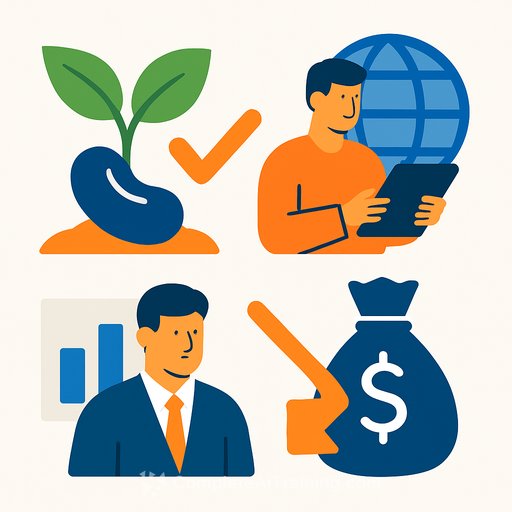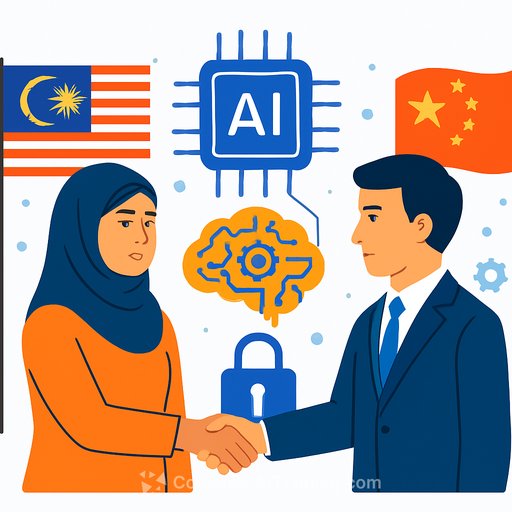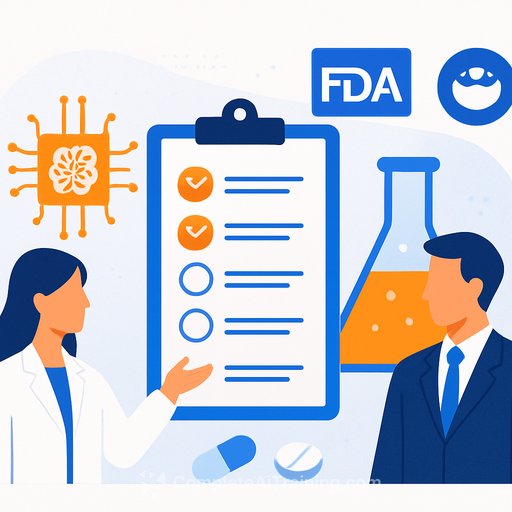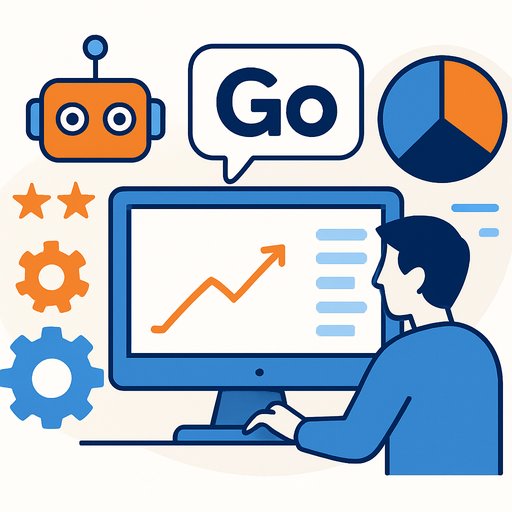Trust, access, inclusion: How AI can actually serve development
The AI4D conference in Barcelona was refreshingly grounded. No flashy model drama - just a clear push to make AI useful, equitable, and real for development work.
"To get AI right, it should be a right," said Emmanuel Lubanzadio, OpenAI's Africa lead, highlighting efforts like ChatGPT Go and an OpenAI Academy for Africa to broaden access and literacy. That framing matters: scale won't happen without affordable tools and the skills to use them.
On the hype-to-reality gap, Nasim Motalebi from the World Food Programme put it plainly: "Only 5% of tasks have been automated … and more than 95% of organizations have failed to scale AI effectively." WFP's Enterprise Language Model is a practical step - letting staff find information in real time. Norway's aid agency, Norad, is also moving with a custom model, RAI, to speed partner report reviews. But as The Thanh Nguyen warned, "The system's effectiveness and legitimacy hinge entirely on the data it consumes."
There was a strong call for diversity in the loop. "If male-dominated AI is giving the answers, we're going to lose incredible diversity of perspective," said Lindsey Moore, CEO of DevelopMetrics. That's why groups like Tech to the Rescue are running AI literacy boot camps before nonprofits adopt tools. As Mara Puacz put it: the promise is huge - and so is the responsibility to build AI well.
Creative technologist Javier Ideami added a sober reminder: humans extrapolate from few examples; AI struggles with that. Getting closer to real-world complexity means bringing different perspectives to the table. Equity and trust aren't "nice to have" - they're requirements if AI is going to deliver progress you can measure.
What IT and development teams can do now
- Set up data quality pipelines before model deployments. No clean, representative data = no trustable outcomes.
- Start with internal search and summarization (ELM-style assistants) for quick wins on productivity and knowledge reuse.
- Budget for training and literacy as part of every AI rollout - for implementers and end users.
- Build review loops with diverse stakeholders. Bias checks aren't a one-time event.
- Track actual uptake and time saved, not just pilot demos. Scale what proves value, sunset what doesn't.
If you're building capability, a focused learning path helps. See practical, role-based options here: AI courses by job.
Bean breakthrough: Soil science that cuts costs and emissions
Brazilian soil scientist Mariangela Hungria received the World Food Prize - the highest honor in food and agriculture - for work that boosts yields by enabling crops to source nutrients through soil bacteria. Her seed and soil treatments are used on 85% of Brazil's soybean fields.
The impact is huge: up to $40 billion saved annually in input costs for farmers and more than 180 million metric tons of CO2e emissions avoided each year. The award includes $500,000 to continue her research.
The timing is notable as U.S. soybean farmers face a China trade squeeze and buyers pivot toward Brazil. On a panel this week, U.S. producers promoted quality and sustainability - but acknowledged emerging markets can't fully replace China.
Why this matters for agtech and climate
- Bio-based inputs are a credible path to yield plus emissions reductions - a signal for carbon-smart supply chains.
- For IT teams in ag, decision support tools should account for soil biology data and new input regimes.
- Cost savings and emissions cuts create room for results-based financing - expect more demand for MRV data systems.
Diversity gains in philanthropy - and the pressure test
New Council on Foundations data shows the sector is getting more diverse despite headwinds. People of color in grantmaking are up 4% since 2022. Women now lead 64% of foundations. The CEO gender pay gap narrowed, with women earning 88% of the median salary of male counterparts (up from 84%).
That's progress, but stress is visible. Turnover is up. Community foundation staff are losing ground against inflation even as private foundation salaries inch higher. "Inflation has spiked so fast … that modest increases can't keep up," said Jason Ludwig at COF. The message: use data to improve pay, retention, and equity, or gains will stall.
What this means for tech hiring
- Budget for COLA plus market adjustments - especially for analytics, data engineering, and security roles.
- Publish salary bands and promotion criteria to protect equity gains.
- Use structured interviews and skills tests to reduce bias and improve fit.
The human price tag of Africa's debt
The African Center for Economic Transformation put a human lens on debt servicing. Modeling caps at 5%, 10%, and 14% of government revenue, they show what could shift if repayments eased.
At 5%, Egypt could eliminate maternal mortality. Ethiopia could send 330,000 kids back to school. Kenya could bring clean water to nearly 700,000 people. "Each of these numbers is somebody's child, somebody's mother, somebody's grandmother," said ACET's Mavis Owusu-Gyamfi.
Borrowing costs remain punitive. "We were penalized even before we went to the market," she said, pointing to Ghana paying over 5% while Greece pays near 1%. Proposed fixes include more IMF Special Drawing Rights, tighter action on tax havens, and even a 1% global tax on investment profits - alongside better project-to-tenor matching at home.
Build for fiscal constraints
- Design digital public goods that run lean: offline-first, low compute, shared infrastructure, open standards.
- Prioritize services with measurable human outcomes to defend budgets.
- Align financing with project ROI timelines; avoid solutions that lock in high recurring costs without clear benefit.
In other news
- The U.S. may replace the Gaza Humanitarian Foundation with a new Gaza Humanitarian Belt using 12-16 distribution hubs.
- EU leaders met to finalize a 10-year plan to cut carbon emissions ahead of the U.N. climate conference.
- The World Health Organization says the tobacco industry is intensifying interference with its anti-smoking and vaping treaty. Read about the treaty here: WHO Framework Convention on Tobacco Control.
Quick next steps for practitioners
- Pick one internal AI use case you can ship in 90 days. Measure retrieval time saved and data quality impact.
- Audit datasets for representation and consent. Document risks in plain language for nontechnical stakeholders.
- Stand up a lightweight governance loop: data steward, model owner, and an external reviewer with lived experience.
- Upskill your team with focused, job-specific learning paths: Complete AI Training.
Your membership also unlocks:






